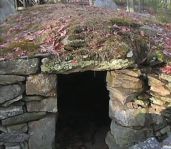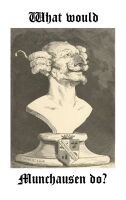|
by Carlos Castaneda  Lessons for all Westerners, believers and skeptics alike
Lessons for all Westerners, believers and skeptics alike
There is a story that several philosophers once met to discuss the nature of reality: whether or not it existed as our senses told us it did, or if it was in fact completely subjective and perhaps even subject to our will in some way. At the end of the discussion, which took place on the top floor of a tall building, the participants all filed out the door, at which point one of the more conservative members of the meeting remarked, "I notice that no one is leaving by the window." Carlos Castaneda has taught us that we can indeed, under the right circumstances, leave through the window. Castaneda, during his course of study with don Juan Matus, Yaqui man of knowledge, learned to move into nonordinary reality, and experience not only magical events, but also that the ways of knowledge and power are difficult and dangerous. This alone would make him a controversial character, but there are other matters that have drawn fire. Some have criticized Castaneda for his use of drugs to obtain states of nonordinary reality: I myself contend that Western conceptions of reality have such a grip on our minds that it is sometimes necessary to use drugs to free ourselves of our preconceptions. Furthermore, cultures across the world have discovered many different ways to move out of ordinary reality into the spirit plane, and in some cultures, drugs are used. It is a mere matter of cultural evolution, according to environment. And Castaneda was not, during his course of study, interested in converting anyone to the way of power or knowledge; rather, he was documenting the use of drugs as a means to access nonordinary reality, and showing us that reality is not what it seems. That he published at a time when drug use was coming into fashion was, for him, a happy coincidence, but in this work at least he doesn't advocate drug use in this cause or any other. His work here is merely to document his experience of the teachings of don Juan. Castaneda has also been attacked by skeptics, who hold that his works are outright lies. Whether or not Castaneda's works are fiction or fact or some blend of the two is irrelevant, since one cannot see the realities he describes unless one already accepts the premise that reality is fluid and malleable by those with the proper training. For skeptics, the works are mere fiction, while for those who believe, there exists a continuum of possible interpretations, ranging from the idea that the works are allegories that illuminate the nature of reality, to being actual reports of reality shifts. Certainly Castaneda has given ammunition to the skeptics, by stating during interviews that he would give false information about himself. This is perhaps merely a way for Castaneda to remind us that Western methodologies are not the only way to know, and that one must look beneath the words and facts to find the truth. In the foreword, Walter Goldschmidt declares that this book is both ethnography and allegory. The part of the allegory that interests me is the tension between Western science and other ways of knowing. Castaneda came to don Juan, prideful and arrogant, and learned from him a modicum of humility and respect. These lessons are of value to most Westerners. For example, one of the lessons that Castaneda learns in this book is the difference between a "power" and an "ally." Most individuals can become sorcerers by using a power, but to gain an ally, which is much more potent, one must work with the forces of nature, and learn the ways of knowledge, following only the way of the heart. It is of prime importance for the planet that Westerners follow the way that has heart, turning toward the universe with respect. As it stands, most of us treat the earth as a natural resource only, to be exploited and discarded. Such actions and attitudes may give one temporary power, but at great expense to oneself and one's habitat. Time and again, Don Juan's lessons remind us that we are not as powerful as we think that we are. His lessons lead Castaneda into situations in which the anthropologist acts like a fool: rolling around on the ground for hours; playing with a dog, even letting the creature urinate on him; clapping his thighs and assuming a "fighting form" for hours to regain his lost soul. I do not mean to be critical of others' customs; these actions are an integral part of Yaqui culture, but to Westerners they look foolish, especially when performed by a supposedly "enlightened" and "objective" student of anthropology. Castaneda, in his search for power, must become, at least for a while, a fool. Dignity is a small price to pay for don Juan's reminder that we are out of balance with the universe. And that is a lesson that we can all learn. Castaneda, the uptight, ambitious, pretentious scholar, comes to learn from don Juan, and time and again performs actions which to most Westerners would appear to be those of a madman or idiot. I cannot say what was in don Juan's heart when he took on Castaneda as a student, but to my eyes he seems to be reminding the Westerner that the lessons taught by the West are incomplete. This book falls flat as narrative, but given the source, an anthropological study of plant use in indigenous cultures, it is perhaps inevitable that it be a bit methodical and digressive. It is nonetheless recommended for those interested in counterculture movements of the 1960s to the present, mysticism, philosophical discussions of reality, drugs, and native American anthropology. In the larger sense, its lessons are of value for all Westerners: it is a subtle reminder of our temporary place in the universe, and of the costs of the way of power and knowledge. |

